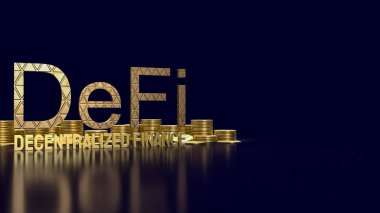作者:SuperEx
编译:白话区块链

2025年6月9日,新任美国证券交易委员会(SEC)主席保罗·S·阿特金斯(Paul S. Atkins)在华盛顿举办的“DeFi与美国精神”圆桌会议上发表了一场具有里程碑意义的演讲。这场演讲迅速成为加密行业热议的话题,业内人士称其为“过去五年中最开放、最支持加密的官方声明”。
有人甚至将这场演讲形容为:“全面DeFi监管的前奏——以及美国精神最纯粹的表达。”究竟是怎样的演讲,能引发如此热烈的反响,并在DeFi社区和加密从业者中掀起一阵喜悦的浪潮?
1. DeFi代表美国精神——不是对机构的威胁
保罗·阿特金斯以一句震撼的开场白拉开演讲序幕:
“DeFi运动的DNA中蕴含着美国的经济自由、财产权和创新精神——这些是我们国家的核心价值观。”
这一开场立即定下了基调:DeFi不是威胁,而是“美国价值观”的延伸。从政治修辞的角度看,这是对去中心化金融(DeFi)的国家化诠释,旨在将公众对新兴技术的疑虑转化为一种文化认同。
这既是对DeFi的积极背书,也标志着监管姿态的转变——从执法为主转向指导为主。这一转变旨在防止因过度打压导致的人才流失和技术外流。
2. 区块链重新定义所有权——SEC必须重新思考何为证券
阿特金斯接着发表了关键评论:
“区块链让我们重新思考所有权、财产权和转移。它是一个无需中介的共享数据库。”
他毫不回避区块链的革命性本质,明确指出问题的核心:现行证券法建立在中介和集中信任的基础上,而区块链绕过了这两者,从根本上挑战了现有法律框架的基础。
简而言之,SEC主席承认,在链上世界中,“发行人”、“中介”和“责任方”等传统概念已变得模糊。下一步是什么?SEC必须决定是延续过时的规则,还是构建新的范式。
3. PoS staking不是证券:SEC立场明显软化
阿特金斯明确表示:
“作为矿工、验证者或staking服务提供者参与PoS网络,不属于联邦证券法的监管范围。”
这句话成为加密社区最受推崇的“金句”之一。此前,SEC前主席加里·詹斯勒(Gary Gensler)多次暗示,像以太坊这样的PoS系统中,staking可能构成证券活动,导致Coinbase和Kraken等平台被调查并罚款。
如今,阿特金斯直接推翻了这一观点,确认PoS参与者不应被视为“证券发行人”。这可能为美国境内的staking相关服务扫清监管障碍。
不过,他补充了一个警告:“这尚未成为成文法”,意味着这一立场仍处于探索阶段,需进一步立法支持。
4. 自我托管是宪法赋予的自由——不应因上链而消失
阿特金斯发表了另一项强有力的主张:
“自我托管个人财产的权利是美国的基本价值观,不应仅仅因为人们上了链就消失。”
这是迄今为止对钱包开发者和链上应用开发者最明确的政策支持。此前,SEC曾考虑监管钱包开发者,理由是他们可能从事“未注册经纪活动”。阿特金斯则完全扭转了这一叙述,称:“编写代码不等于出售证券。”
他甚至援引了法院先例:“你不会因为有人用自动驾驶汽车抢银行,就去起诉自动驾驶汽车的开发者。”
这一表态可能终结笼罩在美国钱包和合约开发者头上的恐惧氛围,鼓励更多链上应用大胆向前发展。
5. 自我执行代码不应仅因“无人控制”而被禁止
阿特金斯进一步评论:
“支持点对点交易的链上代码无需中介,也不应受百年老旧监管框架的限制。”
传统证券法基于“责任方”的假设,即使是平台也必须指定法律代表、运营者或合规官。但区块链世界不同:许多DApp运行在自治智能合约上。“代码即法律”取代了“平台作为责任方”的概念。
阿特金斯的立场非常明确:监管机构不应仅仅因为技术缺乏“人脸”就否定其合法性。这一观点可能大幅降低Uniswap和Tornado Cash等项目的法律风险,并为DAO和合约平台树立了一个里程碑式的信号。
6. “创新豁免”即将来临:链上服务或将获得合法途径
在最后一点中,阿特金斯宣布:
“我已指示工作人员探索创建‘创新豁免’——为希望合规运营的项目提供合法途径。”
长期以来,SEC一直面临一个核心困境:如何在不扼杀创新的同时,履行国会赋予的职责。提议的“创新豁免”本身就是一项政策创新,类似于监管沙盒,允许符合条件的项目在有限时间和特定条件下接受监管。这可能是DeFi产品在美国境内合法化的路径。
值得注意的是,阿特金斯强调:“这不仅适用于注册项目,未注册的开发者也可以参与。”这可能成为链上初创公司、DAO和开发者社区的“绿卡”。
结语
保罗·阿特金斯的演讲传递了六个前所未有的信号:
DeFi不再是“灰色地带”——它是美国价值观的延伸;这无疑是自加里·詹斯勒时代以来SEC最进步、最支持创新的官方立场。当然,这仍处于“政策信号”阶段,正式立法和规则制定尚需时日。但有一点很明确:美国监管机构正从强硬的压制转向引导性实验。
结合特朗普总统提出的让美国成为“全球加密资本”的愿景,阿特金斯的演讲不仅标志着监管语气的转变,更是加密金融领域新监管范式的开端。
本文链接:https://www.hellobtc.com/kp/du/06/5891.html
来源:https://s.c1ns.cn/qpuWD
免责声明:本文章仅代表作者个人观点,不代表本平台的立场和观点。本文章仅供信息分享,不构成对任何人的任何投资建议。用户与作者之间的任何争议,与本平台无关。如网页中刊载的文章或图片涉及侵权,请提供相关的权利证明和身份证明发送邮件到support@aicoin.com,本平台相关工作人员将会进行核查。




